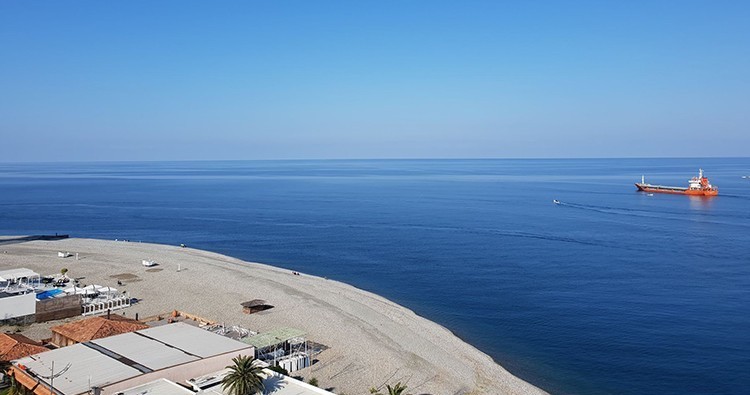World Bank: Georgia can unlock potential for green growth

The World Bank says that climate change will further exacerbate environmental degradation, particularly in Georgia’s coastal zones. Photo: Nino Alavidze/Agenda.ge.
Air pollution in Georgia contributed to more than 4,000 lives lost, while its economic costs were estimated at $560 million, or 3% of gross domestic product (GDP), reads the World Bank report 'Georgia: Towards Green and Resilient Growth', that estimates losses associated with pollution and degradation of agricultural and forest land and coastal zones.
The cost of agricultural and forest land degradation, which disproportionately impacts the rural poor who derive their livelihoods from land, was estimated at $128 million. Restoring landscapes is projected to reduce the poverty gap by 6%", reads the report.
The World Bank says that climate change will further exacerbate environmental degradation, particularly in Georgia’s coastal zones.
In 2018, climate-driven flooding, erosion, waste, and damage to soil were estimated at 5% of coastal zone GDP. The report emphasizes the importance of natural assets for Georgia’s long-term development and outlines how recovery from the Covid-19 pandemic presents an opportunity for the country to build back better, fairer, and greener", reads the report.
Annual agricultural land losses are estimated to cost $122 million. The estimate includes:
- Loss of pasture productivity due to land degradation
- Loss of electricity generation due to river sedimentation
- Reduction of irrigated land
Annual forest land losses are estimated at $16 million. Estimates include tree cover loss and forest degradation.
Major drivers of forest loss are:
- Unsustainable wood harvesting (mostly for fuel), illegal logging, extensive grazing, and forest land transformation for infrastructure and agriculture.
Social Impact of Land Degradation:
- Agriculture and forestry contribute to the economy and job creation and represent about 7% of GDP and 42% of employment
- Rural people derive about 47–61% of their income from agriculture and forestry
- Land degradation has the greatest impact on the poor
- If landscapes were restored, the poverty gap would be reduced by 6% for the poorest 20% of Georgia's population
Under the 2015 Paris Agreement, Georgia has pledged to enhance sustainable development and to curb global warming through its recently updated Nationally Determined Contribution (NDC), which sets forth specific measures for greenhouse gas emission reductions and climate-change adaptation.
As part of its updated NDC, Georgia pledged a 35% reduction of greenhouse gas emissions by 2030 as compared to 1990. At the Conference of the Parties (COP) in Glasgow later this year, Georgia and all Paris Agreement signatories will be reporting on progress made towards these targets.
 Tweet
Tweet  Share
Share